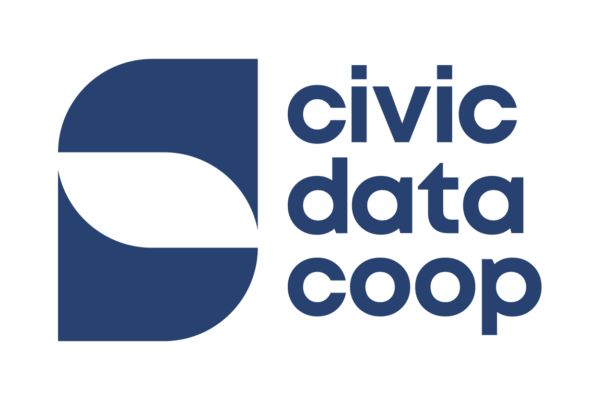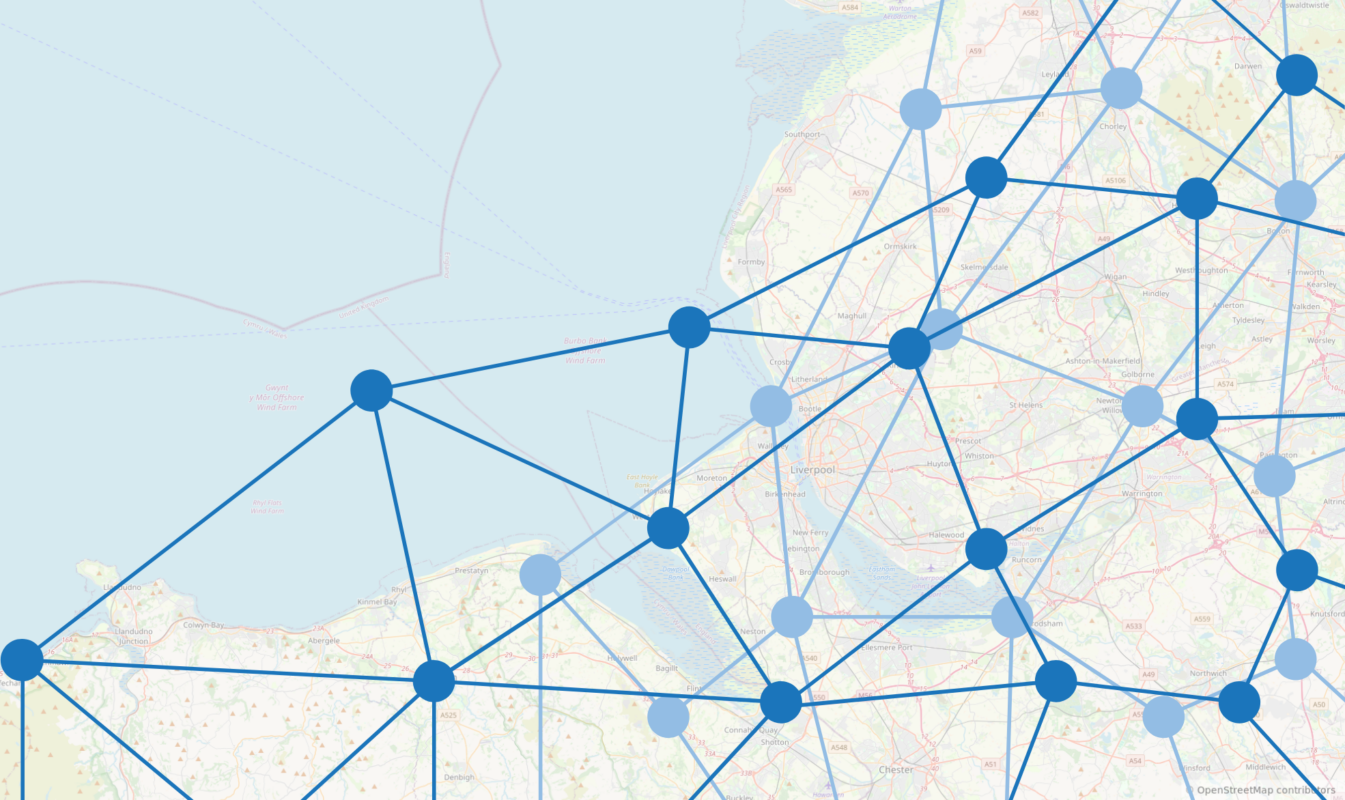Organisations across all sectors rely on data every day to inform their operations and strategies, yet the people working with data often find themselves isolated within their own teams, facing similar challenges without the benefit of shared solutions.
Open Data Manchester (ODM) is working with the Civic Data Cooperative (CDC) at The University of Liverpool to explore how a data community of practice might serve the Liverpool City Region. This post shares our early research insights from this work.
Context
Communities of practice can help practitioners share knowledge, develop skills, and solve common problems – something particularly valuable for data professionals who often work in small teams or alone within their organisations.
Since February 2025, we’ve been conducting a series of in-depth conversations and research across the region, including:
- Interviewing representatives from emergency services, local charities, community spaces, and tech initiatives
- Attending relevant local events to observe and engage with existing communities
- Connecting with other researchers in this space to share insights and avoid duplication
- Prioritising hearing diverse perspectives rather than limiting our scope to any single sector
We’ve also been speaking with other initiatives, including with the Combined Authority on their plans to develop an Office for Public Service Innovation (OPSI), as well as engaging with established community organisers and groups in the region. These connections are helping us understand the broader ecosystem without the need to duplicate existing activity.
This blog post reflects what we’ve learned through late March 2025, recognising that we’re still carrying out research and design for what this community of practice could look like.
What we’ve learnt so far
Small teams, big challenges
Our conversations have consistently revealed how small most data teams are across different sectors. One regional service operates with just two data analysts serving 1200 employees, while a charity working to improve outcomes for young people has essentially one and a half people handling all their data needs.
These small teams are tackling substantial challenges, including:
- Data quality and standardisation issues that require ongoing attention
- Systems that don’t talk to each other, meaning more manual work
- Information governance barriers that slow down data sharing
- Limited access to external datasets that could enrich their analysis
As one data specialist from a youth-focused charity told us: “I’m basically self-taught in Power BI and Excel. We’re trying to streamline processes that are currently very labour-intensive, but finding time to improve our systems while keeping everything running is really challenging.”
Interestingly, we’re seeing similarities between smaller public sector teams and voluntary/community sector organisations – both working with limited resources and struggling to dedicate time to improve their data systems because they have many other responsibilities demanding their attention.
A rich ecosystem of spaces and communities
Liverpool has no shortage of community spaces and existing initiatives that could support a data community:
- Baltic Ventures offers free community space for quality events
- DoES Liverpool provides a grassroots makerspace with affordable event space
- Partnership for Learning offers professional training facilities
- The Good Ship runs Tech Breakfasts and AI/tech fireside chats
- Matchstick/Fire Starters organises networking events.
There are many more. Each space brings its own character and community, from the more business-focused Baltic Ventures to the grassroots activist ethos of DoES Liverpool, where community-led data projects like air quality monitoring are taking place.
Different needs, different preferences
We’re seeing an interesting tension emerging in community preferences:
- Professional practitioners from public and VCSE sectors strongly prefer events during working hours
- Community groups and grassroots activists are typically available evenings/weekends
- Multiple interviewees expressed a desire for in-person meetings over online ones
- Some we spoke with suggested monthly meetups would be more effective in keeping momentum, whilst others said they would be more likely to attend quarterly gatherings
- Smaller organisations have expressed concerns about larger organisations potentially dominating conversations
This creates a challenging balance to achieve. There’s significant value in cross-sector pollination – public sector data practices could benefit from community-led innovation, while grassroots initiatives could gain insights from professional methodologies. The exchange of ideas across these boundaries could encourage new approaches to shared data challenges.
However, the practical question remains: how can a community accommodate these different availability patterns while ensuring equitable participation? Some suggestions we’ve heard include rotating venues, providing a mix of broad quarterly gatherings with more focused monthly sessions, and involving participants in agenda-setting to increase ownership.
Existing Networks & Models
Our research has uncovered several existing networks and models that could inform the region’s data community:
- Regional analysts network (e.g., GM Analysts Network) hosting quarterly meetings for public sector and academic analysts
- Local health data networks and platforms operating across the region
- A regional business support organisation (e.g., Growth Platform) offering circulation of event information through newsletters
- Various private sector data-driven organisations in retail and technology (examples include Hype Affinity, Very Group, and Kindred)
We were also told there’s been longstanding interest in creating a data community for the region, with several previous attempts that didn’t fully materialise. This history provides both cautionary lessons and enthusiasm for a fresh, well-supported approach.
What’s Next?
As we continue our work, our aim is to provide insights that can inform the development of a useful, sustainable data community in the Liverpool City Region.
The first community gathering will happen at the Civic Health Innovation Labs within the Liverpool Science Park on 6 May 2025, where we’ll hear more about the community of practice, have a speaker or two, and people will have the chance to collaborate to help design what the community could and should be.
The May event will be particularly valuable in helping us understand how different sectors might interact in practice and what approaches might best serve the diverse needs that have been identified. It will also give potential community members a voice in shaping how this initiative develops.
If you want to know more, please get in touch.
This research is being conducted by Open Data Manchester for the Liverpool Civic Data Cooperative.



